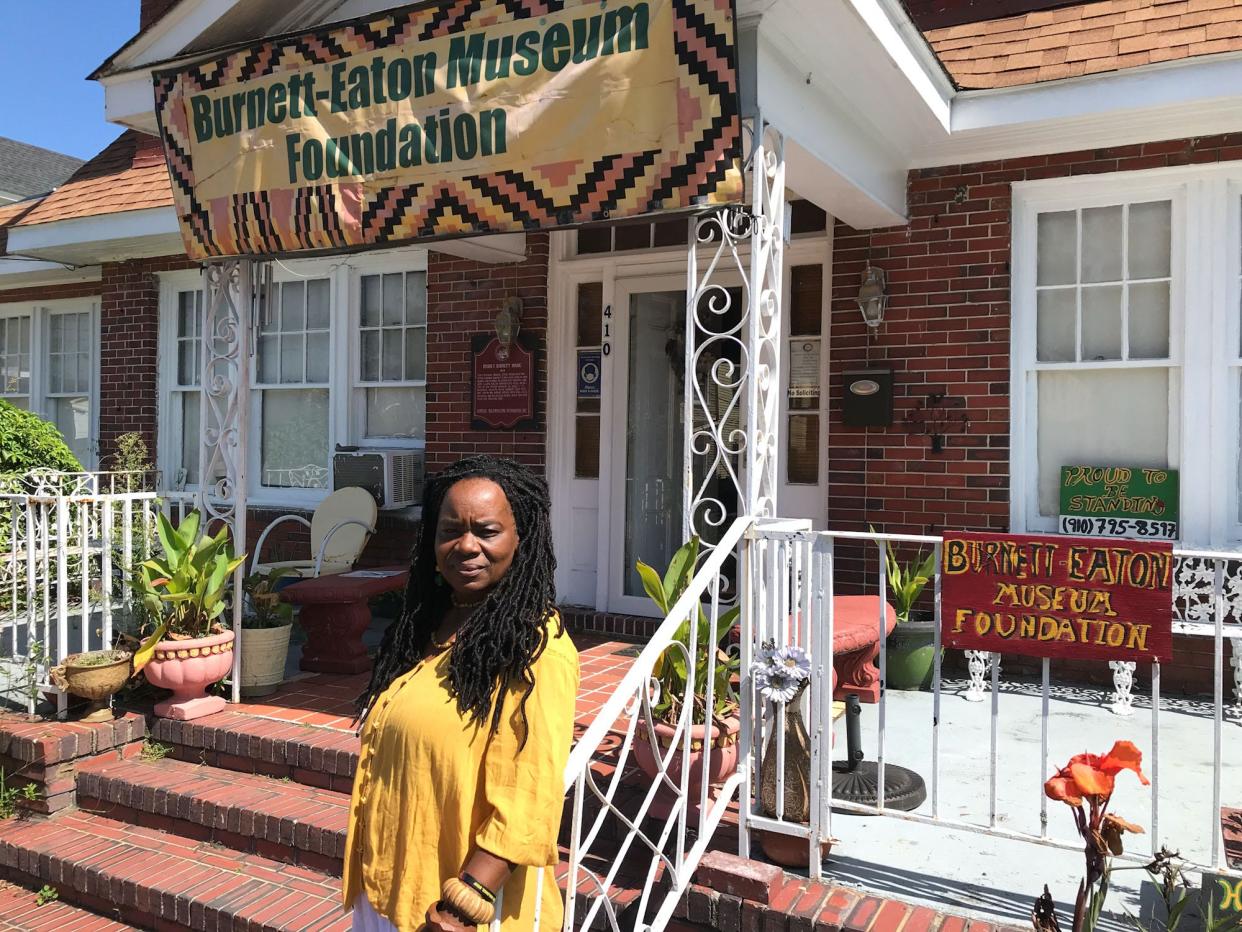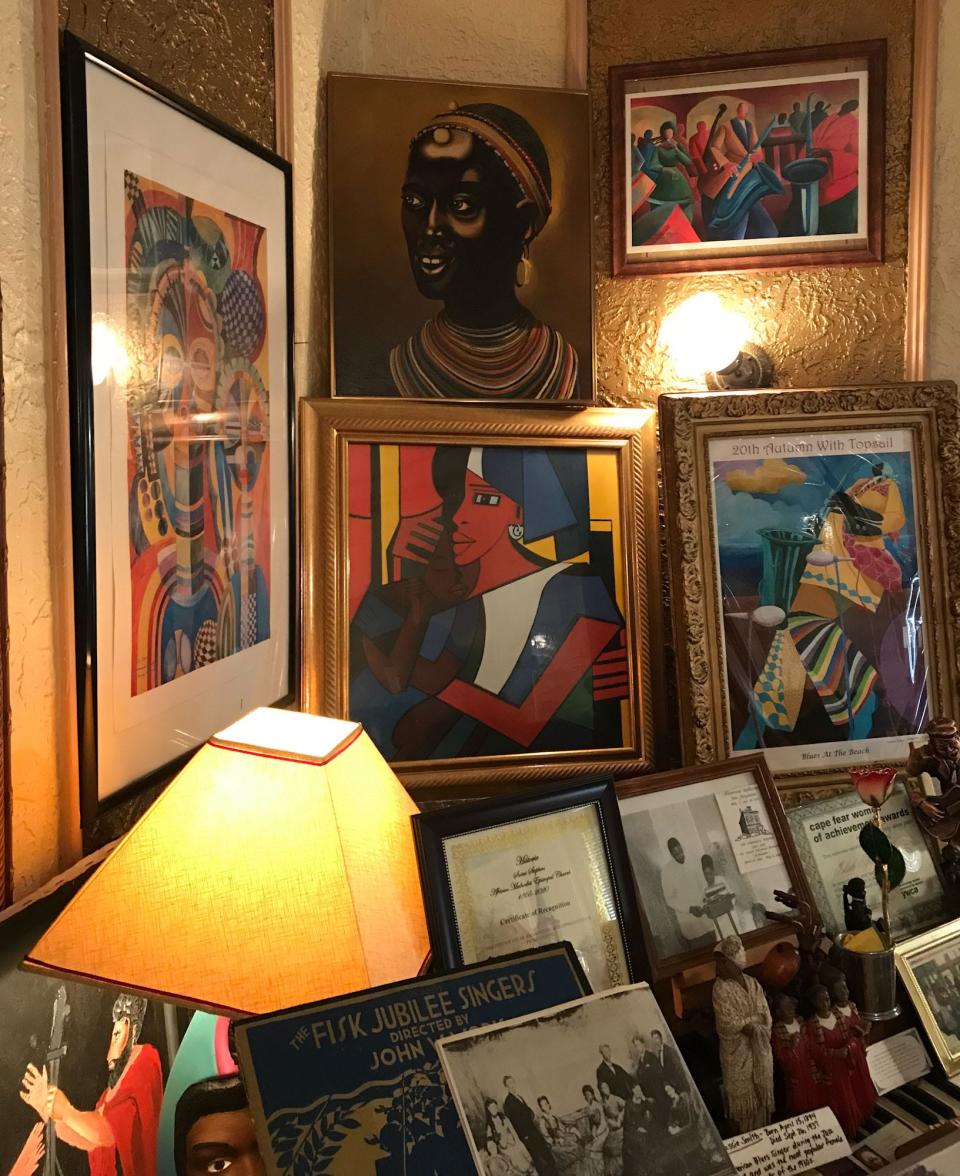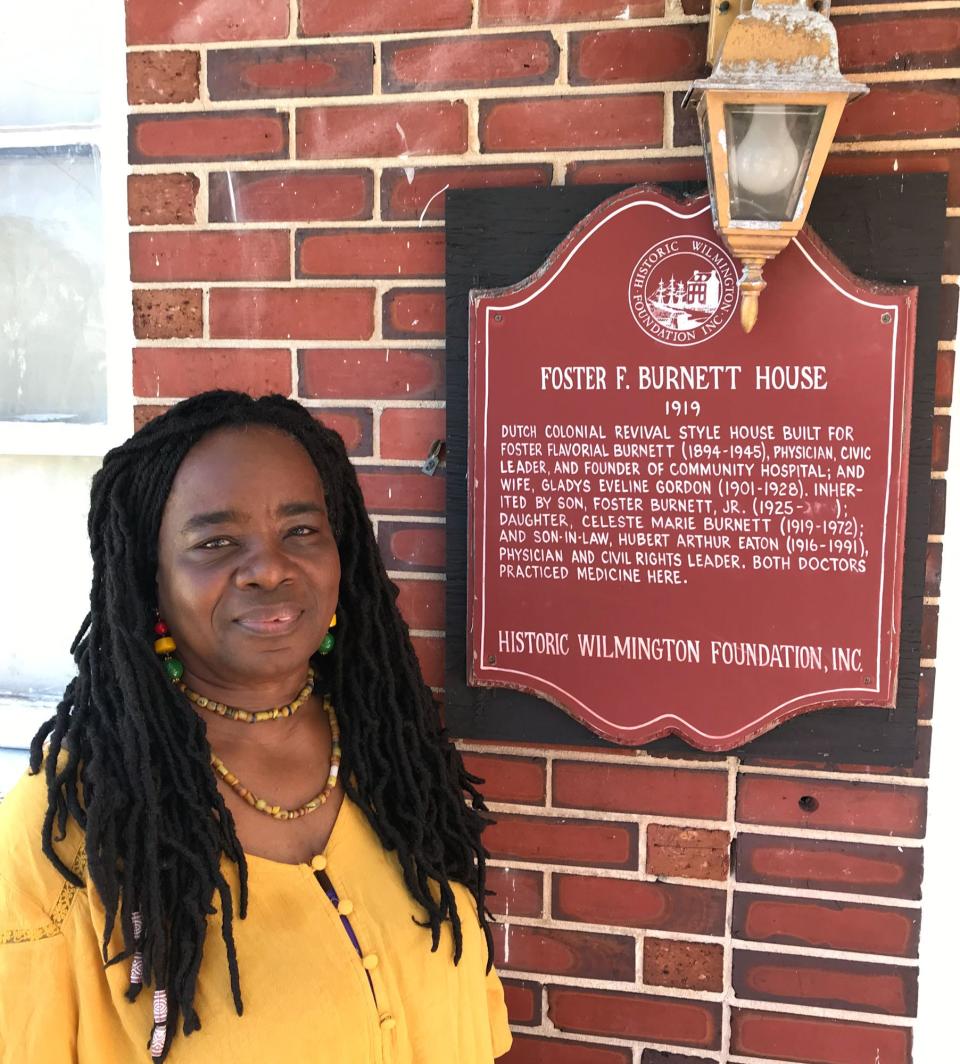Wilmington's only museum for Black history works to 'restore a community's self-esteem'

Located on North Seventh Street in downtown Wilmington's Northside neighborhood, the Burnett-Eaton Museum Foundation is the first and only museum in town dedicated to local Black history.
Its founding by director and founder Islah Speller goes back to 2006. But Speller said the foundation's roots can be traced back to the late 1990s, when she and her husband, Damiyr Speller, moved downtown from the suburbs near College Park Elementary School.
"It was a culture shock for us," Islah Speller said, and she and her husband became focused on protecting her sons from the violence and drugs that had taken hold in the economically depressed Northside neighborhood in the 1990s. "Their susceptibility, as young Black men, was very great."
Unknown to her at the time, Speller said, the house they moved into was built in 1919 for Foster F. Burnett, a prominent Black Wilmington physician who was also the father-in-law of fellow doctor and civil rights activist Hubert Eaton Sr., who married Burnett's daughter, Celeste. Eaton's first home in Wilmington was the house at 410 N. 7th St. where the Burnett-Eaton Museum is located.
Once she found out about the house's former inhabitants, said Speller, a trained nurse and graduate of New Hanover High School and Cape Fear Community College, she became obsessed with the history and dug in, doing countless hours of research.
Hubert Eaton Sr.: What to know about a Wilmington icon whose legacy of school desegregation is in peril
As part of her goal of combatting violence -- Speller had me recite a moving pledge of active non-violence written by her husband and one of her sons the day I toured the museum -- she began to focus on lifting up her community and educating Wilmington on the positive contributions of Black leaders throughout the Port City's hisotry.
"A lot of psychological damage has been done to our community," Speller said. "If you restore a community's self-esteem, they can become proud of who they are and what they've accomplished. When you value something, you try not to hurt it."
In May, Speller and the Burnett-Eaton Museum Foundation were instrumental in getting a historical marker for Eaton that was unveiled at the historic New Hanover County Courthouse at Third and Princess streets, a marker that is now part of the North Carolina Civil Rights Trail.

The museum is packed to the gills with photographs, documents, artifacts and newspaper and magazine clippings. There are pictures of a graduating class from the all-Black Williston Industrial School, the vocational counterpart of the all-Black Williston Senior High from the days of segregation, and pictures of Black workers at the old Sprunt cotton factory, where the Cotton Exchange is today.
There is a shackle once used to bind enslaved people. Photos of local and national Black leaders are everywhere. Art by Black Wilmington artists, including the late Harry Davis and the late Ivey Hayes, hangs on the walls.
There's an old EKG machine like one Dr. Eaton once used, as well as information on both African history and the Cape Fear Indians who once inhabited Southeastern North Carolina.
"It builds up gradually. Wherever you go, you find something," Speller said. "We are promoting a culture. We need a museum owned and run by its people."
Black history: Wilmington African-American history walking tour creator: 'This is our story'
She does walking tours and riding tours of local Black history, as well as museum tours, all by appointment. The foundation does an essay contest for local schoolchildren, leads celebrations for Kwanzaa and Martin Luther King Jr. Day and does other forms of community outreach, all on a shoestring budget.
"It's hard for us," Speller said, adding that the foundation needs donations, volunteers and a grant writer,
"It's an emergency because of the gentrification and the fast building that's taking place" on the Northside, she said. "They are building over our sites before we can even mark them."
Speller shows me a map she uses on her "Sugar Hill" tour of once-prosperous Black businesses, dozens of which were destroyed by the violence of 1898, when whites killed dozens of Blacks in Wilmington and drove hundreds of others out of town.

In the part of the Burnett-Eaton Museum that used to be Dr. Burnett's office, where he also had an X-ray room and a small pharmarcy, Speller's son now runs House of Cuts, a popuar barber shop and esthetician service he started as a way to bring more Black-owned business back to the Northside.
Speller is a font of information on the history of Wilmington's Black community. Standing on the front porch of the Burnett-Eaton house, she points to a house down the block that was once home to Dr. Leroy Upperman, for whom the University of North Carolina Wilmington's Upperman African-American Cultural Center was named.
Across the street, the house that once held a nursing school for Black women still stands, as does the former office of Dr. Eaton. The old Community Hospital for Blacks was also across the street, Speller said, later replaced by New Community Hospital in the 1920s at 11th and Castle street, which itself was torn down in early 1970s.
In a way, it makes sense that some of the most prominent and influential people in Wilmington's Black community in the 20th century were physicians. In the traumatic wake of 1898, the community needing healing, and men like Burnett, Eaton and many others, including Black nurses like Annette Freeman, provided it.
"They were psychologists. They ministered," Speller said. "They were everybody."
Want to go?
What: Burnett-Eaton Museum, Wilmington's only Black history museum
When: 10 a.m.-6 p.m. Tuesday-Sunday, by appointment only
Where: 410 N. 7th St., Wilmington
Admission: $10 suggested donation for adults, $5 for children
Details: 910-795-8597
This article originally appeared on Wilmington StarNews: Burnett-Eaton Museum in Wilmington NC is dedicated to Black history

